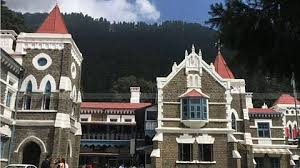2 days after dates given: High Court stays panchayat polls in Uttarakhand

In a major development, the Uttarakhand High Court has halted the upcoming panchayat elections, just two days after the schedule was released. The court acted on a legal petition that raised concerns about the reservation process and ward delimitation.
Legal Petition Triggers Court Order
A resident of Uttarakhand filed a petition challenging the State Election Commission’s move. The petitioner claimed that ward boundaries were incorrect and reservations were misallocated. These issues could prevent fair participation in the elections.
The court reviewed the matter and ordered a stay on all election-related activities. It directed officials to resolve these irregularities before continuing with the process. The judges emphasized the need for a free, fair, and lawful election.
Election Preparations Now on Hold
The stay order affects several districts where panchayat elections were scheduled soon. Officials must now pause the preparation process, including voter list updates, nominations, and campaign approvals.
Local governance may face delays as a result. In many villages, panchayats manage basic services, distribute resources, and implement government schemes. Without elected leaders, administrative decisions could slow down, especially in rural areas.
Opposition Supports the Court’s Move
Opposition parties welcomed the High Court’s intervention. Leaders from the Congress and Samajwadi Party praised the decision, calling it a victory for democratic rights.
They had earlier warned about errors in the reservation system and ward boundaries. Congress leaders had even asked the government to postpone the polls until corrections were made. They believe the court’s decision confirms their concerns.
Government Disagrees with the Verdict
The state government expressed disappointment over the stay order. A BJP spokesperson said the decision delays the democratic process, which hurts local governance. However, they also promised to comply with the court’s instructions.
The State Election Commission (SEC) has not commented yet on whether it will challenge the verdict. Officials said they would review the judgment and act accordingly.
Main Issues: Delimitation and Reservations
The key problems highlighted in the petition involve incorrect ward boundaries and wrong reservations. In some areas, new administrative changes were not reflected in the electoral map. As a result, residents and candidates could face confusion during the elections.
There were also claims that seat reservations didn’t match the local population data. That could violate the rights of Scheduled Castes, Scheduled Tribes, and women. Legal experts say such errors can lead to post-election disputes and instability in rural governance.
Election Commission Faces a Dilemma
With the stay in place, the State Election Commission faces a tough situation. Officials must now revise voter lists, update boundaries, and correct reservation data. This process may take several weeks or even months.
The SEC will need to release a fresh schedule once all corrections are complete. Until then, the entire election timeline remains uncertain.
Rural Communities Await Elected Leaders
In areas where panchayat terms have ended, government-appointed administrators are running local bodies. These officials handle daily tasks, but residents miss the accountability and involvement that elected leaders provide.
Activists from civil society groups are urging the state to act quickly. They want the process to be fair but also demand timely elections. Delays in electing panchayat members may stall local projects and community welfare schemes.
Judicial Oversight Becoming Common
This incident reflects a broader trend across India. In states like Madhya Pradesh, Tamil Nadu, and Maharashtra, courts have recently stepped in to stop flawed local polls. These cases often involve errors in reservation, incomplete voter rolls, or poor planning.
Experts believe such interventions protect the democratic rights of marginalized communities. While they cause short-term delays, they help build stronger electoral systems in the long run.
Conclusion
The Uttarakhand High Court’s stay on the panchayat polls sends a strong message. Elections must be planned carefully and follow the law. As the State Election Commission and the government work to resolve these issues, the people of Uttarakhand wait for a fair and timely election process. The coming weeks will show whether the state can balance legal accuracy with administrative speed.






